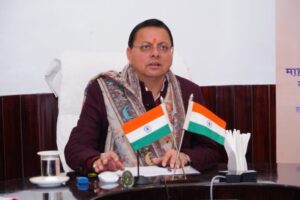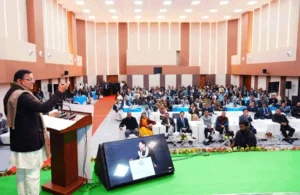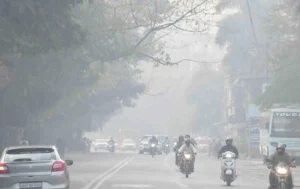

Commission develops prototype Remote Electronic Voting Machine (RVM)
Overseas voters will be able to vote for their home/native constituency from anywhere in the country
Lakhs of migrant Uttarakhandis also live outside the state:
The Election Commission of India has started work on providing remote voting facility to citizens settled elsewhere in the country from their home town. For this, the Commission has developed a prototype Remote Electronic Voting Machine (RVM). This will enable overseas voters to vote for their home/native constituency from anywhere in the country. The Commission has invited all the recognized 08 National and 57 State parties on 16.01.2023 to demonstrate the working of Multi-Constituency Prototype Remote EVMs. Members of the Technical Expert Committee of the Commission will also be present on this occasion. The Commission has also requested the recognized political parties to submit written representations by 31.01.2023 on various related matters including required legal changes, changes in administrative procedures and voting method/RVM/technology for domestic overseas voters, if any. . Based on the feedback received from various stakeholders and the performance of the prototype, the Commission will take forward the process of implementing the remote voting system in a suitable manner.
It is noteworthy that soon after taking over as the Chief Election Commissioner, Shri Rajeev Kumar came face-to-face with the problem of migrant citizens by trekking to a remote polling station in Dumak village of Chamoli district in Uttarakhand. He pointed out the need that the migrant voters should be enabled to exercise their franchise from their present place of residence.
A comprehensive discussion on remote voting has been started by the Election Commission of India. Legal, statutory, administrative and technological initiatives are needed to implement such empowerment. The Commission’s team sought inclusive solutions to enable the electoral participation of migrants at all socio-economic levels and alternate methods of voting such as two-way direct transit postal ballots, proxy voting, special early polling stations All the options like early voting, one-way or two-way electronic transmission of postal ballots (ETPBS), internet based voting system etc. were discussed in detail.
With the objective of finding a reliable, accessible and acceptable technological solution for all stakeholders, the Commission headed by Chief Election Commissioner Shri Rajeev Kumar along with Election Commissioner Shri Anoop Chandra Pandey Commission and Election Commissioner Shri Arun Goyal has launched Remote Voting for Domestic Overseas Voters. To enable polling from the centres, an option has been explored to use a modified version of the time-tested M-3 EVM model. In this way, the migrant voter need not travel back to his home district to exercise his franchise.
* It may have special importance in the context of Uttarakhand. Lakhs of people here live in different parts of the country for reasons of employment, business, education etc. With remote voting, they will be able to vote for their home area and participate in the development process there. ,
Challenges faced by the commission in defining domestic migrants, enforcement of model code of conduct, maintaining secrecy of voting, facilitating polling agents for identification of voters, process and method of remote voting and counting of votes, inter alia. A concept paper has been circulated among all political parties mentioning
The Commission in association with a reputed Public Sector Enterprise has launched a multi-constituency Remote Electronic Voting facility to facilitate the participation of domestic migrant voters to vote for their home constituencies from their remote location i.e. from their current place of residence. The machine (RVM) is ready to be started experimentally. This modified form of EVM can conduct polling in 72 different constituencies from a single remote polling booth. This initiative, if implemented, has the potential to bring about a huge social change for the migrants and will help them stay connected to their roots, as many a time they leave due to various reasons like regular change of their places of residence. Not having enough social and emotional connect with the issues of migration area, reluctance to get names struck off from the electoral rolls of their home/native constituencies (since they have permanent residence/property there) to register themselves as voters at their place of work Reluctance to register in
In the age of technology, denial of voting rights on the basis of migration is not an acceptable option. The general election 2019 saw a voter turnout of 67.4 per cent and the Election Commission of India is mindful of more than 30 crore electors not exercising their right to vote and the percentage of voting varying across states/UTs. improve voter turnout




